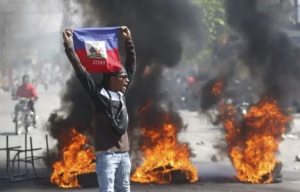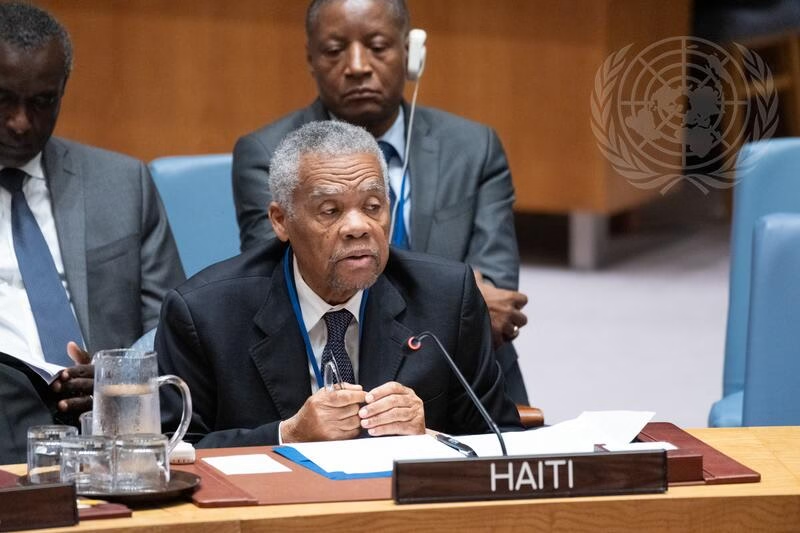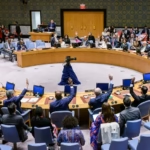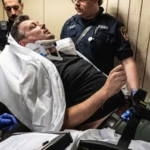Addressing the Security Council, Haiti’s representative provided an unvarnished assessment of the national situation, while expressing gratitude to member states for adopting the resolution that transforms the existing support mission into a gang suppression force.
His structured and assertive intervention connected four key points: the diagnosis of the Haitian crisis, appreciation for partners who supported the text, the operational scope of the resolution, and a heartfelt tribute to Kenya and other contributors.
He recalled the shock that the current situation represents for a founding member of the UN.
Referring to the post-1945 period and Haiti’s adherence to the Charter, he emphasized that “no Haitian, even in their most terrifying nightmares, could have imagined the country’s present state. No one could have imagined that after 80 years, Haiti would become the poorest country in the Western Hemisphere, the most violent, the most fragile, and even the most corrupt,” lamented Ericq Pierre.
The representative described the territorial expansion of armed groups, particularly around the capital, and their methods of operation against civilians, institutions, and the economy.
He stressed the need for immediate change: “This must stop.” These groups, he emphasized, “are not mere delinquent gangs, but powerful criminal organizations that challenge authority and even threaten regional stability.”
Haiti’s permanent representative to the United Nations made these remarks during the vote on Resolution 2793, introduced by the United States and Panama.
Ericq Pierre took the opportunity to thank the initiators of the resolution and other Security Council members who facilitated its adoption, which aimed to address Haiti’s security crisis. “I wish to express the Haitian government’s gratitude to all members of this Council,” stated Ericq Pierre, with special acknowledgment to the two pen-holders for Haiti, the United States, and Panama, for their unprecedented mobilization.” He also emphasized that “CARICOM’s support has never wavered during these challenging times,” appreciating “the public gesture of those who joined the press briefing, demonstrating strong support for the Haitian people.”
The adoption of this resolution represents, according to Ambassador Ericq Pierre, “a decisive turning point in my country’s fight against one of the most severe challenges in its history,” noted the permanent representative, who views this vote as “invaluable support and a strong signal of international solidarity, enabling the strengthening of National Police capabilities and securing critical areas.”
Mr. Pierre also believes that the resolution’s adoption “provides the international community with the means to address the gravity of the situation in Haiti.”
The objective is unambiguously stated: “to neutralize these terrorist organizations, disarm their militias, dismantle their networks, secure the country’s vital infrastructure, and create conditions for the effective return of state authority throughout the territory,” emphasized Ericq Pierre, who took the opportunity to commend the Kenyan mission’s work in Haiti.
Ericq Pierre concluded his remarks by calling for United Nations member states to contribute to making this mission successful.









